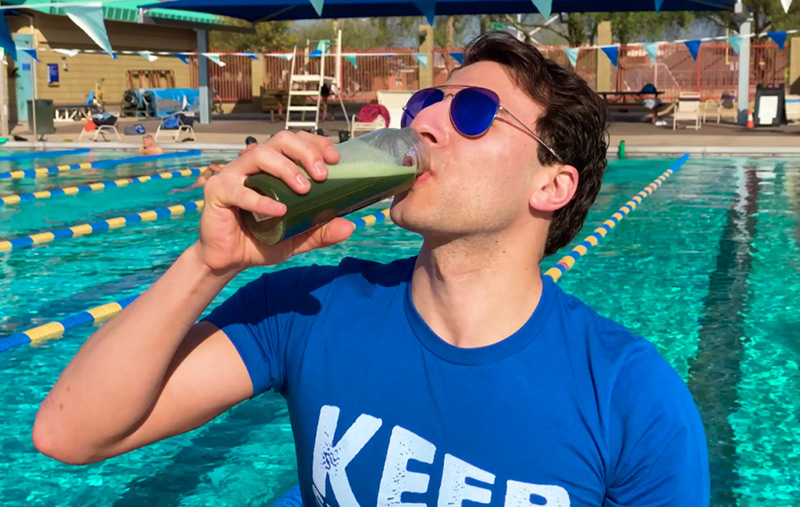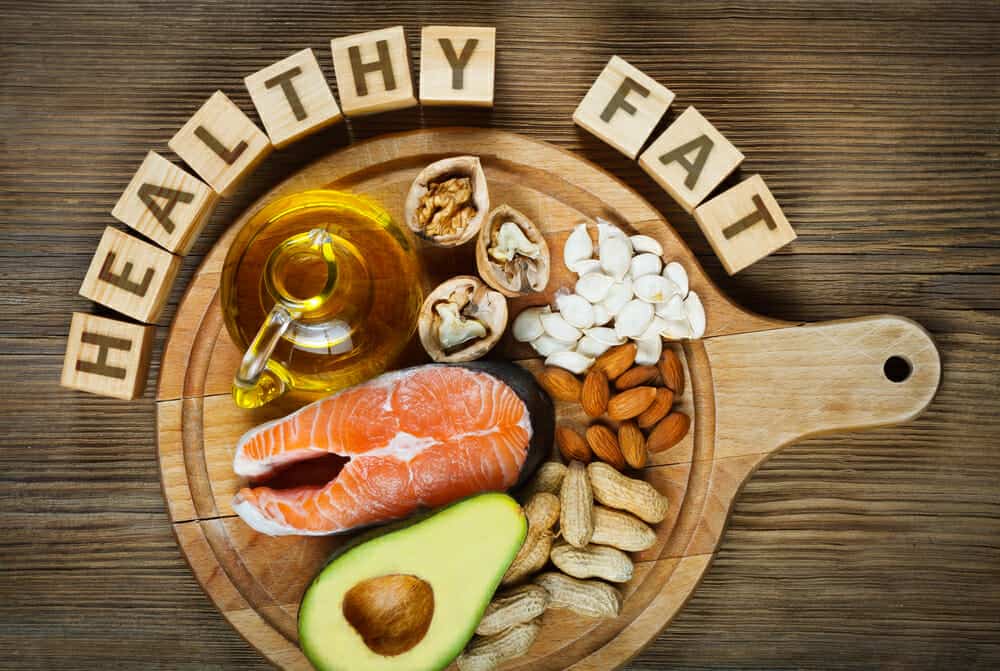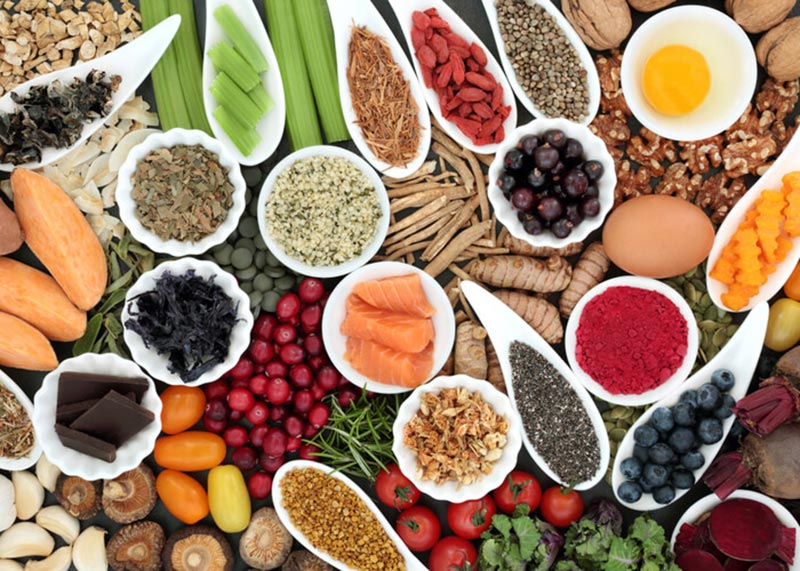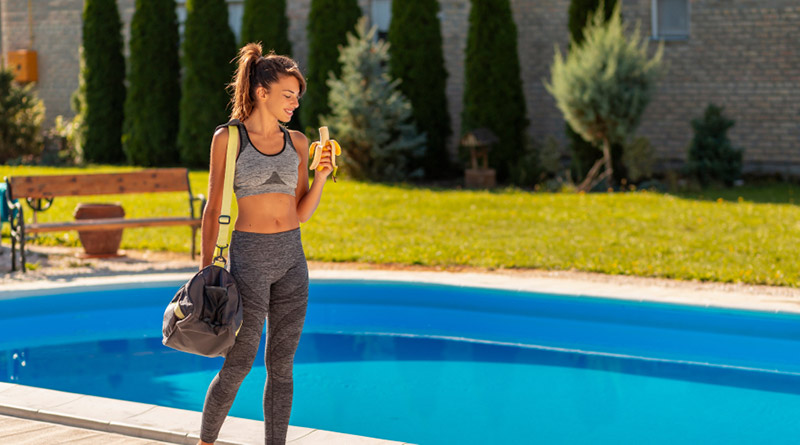Achieving an understanding of the pool requires more than mere physical strength; it demands a process of strategic preparation, mental concentration, and swim nutrition. Similar to a carefully adjusted engine, your body requires the proper fuel to reach its maximum potential and accomplish your swimming objectives. By examining the fundamental elements of swim nutrition, this article helps you provide your body with the nutrients it needs to succeed. Furthermore, we shall examine the advantages of Swim Time Log, a community specifically created for improving one’s swim training.
Understanding Your Swim Nutrition Needs
Before dive deeper into what to eat, we need to understand that the requirements of individuals may differ depending on various factors, including:
- Training intensity and duration: Swimmers with high workout volumes need more fuel than those with moderate programs.
- Body composition and size: Larger individuals have naturally greater energy requirements than their smaller counterparts.
- Individual goals: Your swim nutrition plan must reflect whether your objective is peak performance, weight loss, or muscle gain.
Moreover, swimming sets distinct physical demands on a person. Swimming, in contrast to weightlifting, which targets particular muscle groups, needs a well-rounded approach to swim nutrition. This requires nutrient-dense foods from all food groups.
Read more: Best food to eat after swimming workout
Carbohydrates
Carbohydrates are among the most important swim nutrients since they supply sustained energy throughout extended exercise sessions. Look for fruits, vegetables, and whole cereals (e.g., brown rice and oats) which are rich in complex carbohydrates.

Carbohydrates play an important role in a swimmer’s nutrition plan
Protein
Protein is essential for the development and repair of muscle tissue. Lean protein can be easily found in food sources such as fish, eggs, Greek yogurt, and chicken breast.
Healthy Fat
Healthy lipids, or healthy fat provide essential nutrients and aid in digestion. Consider utilizing almonds, seeds, avocado, or olive oil as sources.

Healthy fats in sports nutrition for swimmers
Minerals and vitamins
Provide support for a multitude of biological functions and enhance overall performance. A balanced diet is necessary in order to acquire these vital micronutrients.

Minerals and vitamins are the best nutrition for swimmers
Implementing A Sports Nutrition For Swimmers
The following is a summary of the nutrition for swimmers guide with important components of your plan:
Pre-exercise meals
Aim to ingest a meal two to three hours prior to swimming. For sustained energy, give priority to complex carbohydrates such as whole cereals (e.g., brown rice and oats), fruits, and vegetables. Incorporate lean protein sources into your diet, such as chicken breast, Greek yogurt, or eggs, to stimulate muscle growth and repair.

Pre-exercise meals in nutrition for swimmers guide
Scrambled eggs with spinach on whole-wheat toast, a banana, or oatmeal topped with berries and almonds are all the best nutrition for swimmers in pre-workout meals.
After-exercise meals
This meal, which must be consumed within 30 to 60 minutes of your swim, is essential for muscle replenishment and recovery. Prioritize carbohydrates for glycogen recovery and protein to facilitate muscle repair. Healthy lipids should be incorporated for satiety and overall nutrition.
Examples of post-workout meals include grilled salmon with brown rice and roasted vegetables, lentil soup with whole-wheat bread, and a turkey sandwich with avocado and whole-wheat bread.
Snacking strategies
Incorporating nutritious snacks into one’s routine can aid in energy maintenance, appetite control, and the prevention of unnecessary mealtime intake. Opt for nutritious alternatives such as nut butter-coated fruits, granola-topped yogurt, vegetable skewers with hummus, or hard-boiled eggs.
Hydration
Sufficient hydration is an essential factor in ensuring peak performance and speedy recovery. It is advisable to maintain a consistent water intake throughout the day, irrespective of desire. It is advised that athletes drink 17 to 20 ounces of fluid per hour of exercise, or for every 2 pounds of body weight. In particular, electrolyte-rich beverages should be considered during prolonged or strenuous exercise sessions.
Avoiding Unrealistic and Harmful Swim Nutrition Practices
Extreme calorie restriction and restrictive diets are rabbit holes that some people fall into when they want to succeed. It is vital for one to understand that these practices involve significant risks.
- Deficiencies in important nutrients: Restrictive diets frequently exclude entire food groups, thereby depriving the body of nutrients that are necessary for peak performance and health.
- Loss of muscle: If you cut back on calories too drastically, you risk losing muscle mass, which will lower your strength and swimming ability.
- Reduced immunity: Malnutrition can weaken your immune system, making you more susceptible to disease and slowing recovery.
- Mental health issues: Tight dietary restrictions may lead to disordered eating and the development of unhealthy attachments to food.
Sustainable, well-balanced swimming nutrition is critical for both attaining swimming objectives and sustaining enduring health.
Build Your Journey with SwimTimeLog
After gaining significant knowledge regarding swim nutrition, the next thing to do is to examine how to effectively apply this understanding to the way you train. You can also join our community to learn from our experienced instructors through Instagram, Facebook, Tiktok and Youtube.
Explore more: Unlocking the Power of Sports Nutrition for Swimmers
AUTHOR
Sang Nguyen
Sang Nguyen is a former national swimmer for Vietnam who has transitioned into coaching. With a passion for fostering a healthy swimming community and connecting like-minded individuals,......Read More
BLOG
Maybe You Are Interested
Good Swim Meet Snacks: What to Eat for Optimal Performance
Good nutrition is crucial for swimmers to maintain energy, recover quickly, and perform at their...
Read More...Optimizing Your Performance: The Best Diet for Swimming Training
Optimizing your performance in swimming is not just about rigorous training; it’s equally crucial to...
Read More...Achieve Peak Performance with This Diet Chart for Swimmers
Whether you’re a novice or an expert swimmer, understanding the right diet is crucial for...
Read More...Eating Like a Champion: Exploring the Diet of Michael Phelps
Michael Phelps, renowned for his Olympic triumphs, has a diet as extraordinary as his swimming...
Read More...Muscle Gain for Swimmers: Tailoring Your Diet for Strength
Swimming is a demanding sport that requires a tailored approach to nutrition to support muscle...
Read More...A Comprehensive Diet Plan To Gain Weight For Swimmers
Swimming is a demanding sport that requires meticulous attention to nutritional needs to optimize performance,...
Read More...